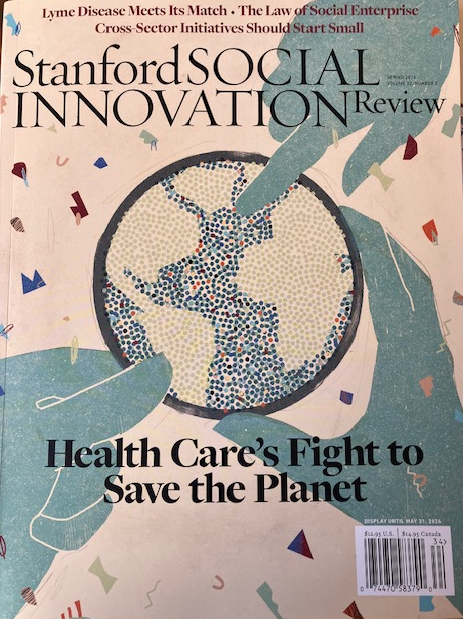While the health care sector's primary mission is healing, it paradoxically contributes to the climate crisis as one of the main greenhouse gas (GHG) emitters. Health Care Without Harm’s 2019 research, titled Health care’s climate footprint: How the health sector contributes to the global climate crisis and opportunities for action, revealed that if the health care sector were a country, it would be the fifth-largest GHG emitter on the planet. This startling revelation served as a wake-up call. Recognizing that the health sector is both a contributor to and a solution for climate-related health issues, we identified an opportunity for systemic change.
In a featured article on the cover of this month's edition of the Stanford Social Innovation Review, Josh Karliner, our Director of Global Partnerships, reflects on the journey of Health Care Without Harm and our regional partners—the global network—in promoting sustainability within the health care sector. He shares valuable insights gained and lessons learned as we’ve guided a movement aimed at climate action. Delve into these lessons by reading the full article here.

Today, we're savoring the early wins of this significant movement toward health care climate action, aiming for decarbonization and alignment with the Paris Agreement—a burgeoning wave that Health Care Without Harm and our partners have been instrumental in spearheading for over 27 years. Our mission is to transform health care worldwide so that it reduces its environmental footprint, and we won’t stop until we do.
Join us in this movement for health care climate action. To learn more, explore our website and get the latest on our climate-saving resilience and sustainability initiatives.
